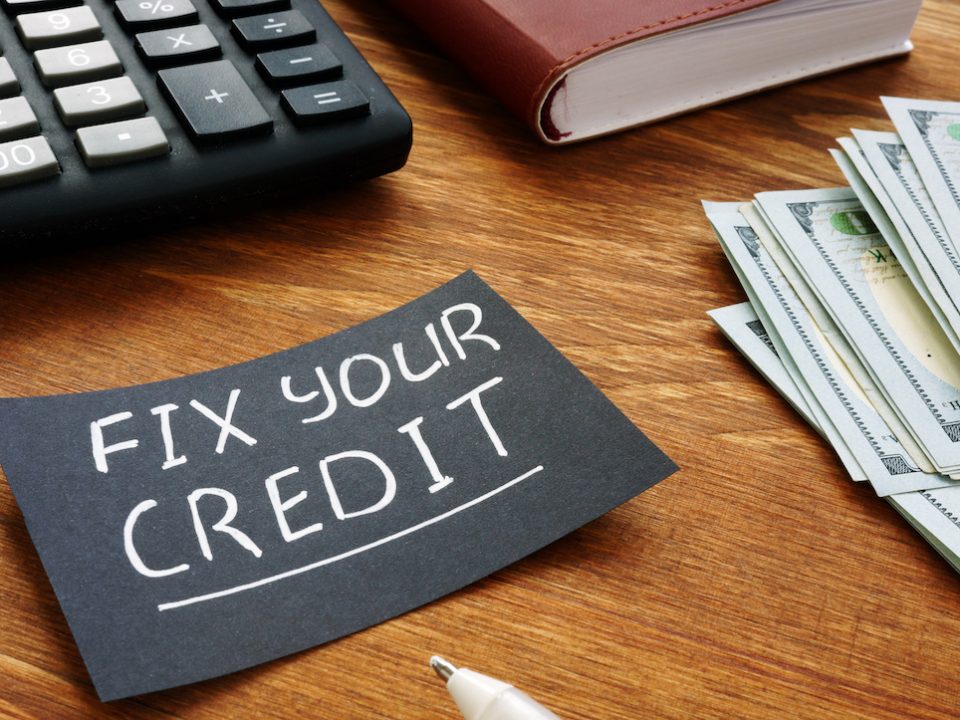If your FICO credit score is poor, you might consider using a credit card to help improve it. If done correctly, using credit cards can improve your credit score substantially.
FICO credit scores are calculated using history in your credit report. The ranking takes into account your current debts, payment history, defaults, and bankruptcies. Scores can range from 300 to 800, with bad or poor credit being anything below 579. This number indicates your overall creditworthiness and can affect your ability to do things like rent an apartment, buy a new car, or get a mortgage.
Credit cards are a great tool when it comes to building credit. However, they can also be equally as dangerous. To make sure you are using credit cards to your advantage, and not harming your credit reputation, make sure you are being responsible with each swipe.
As soon as you get a credit card, you will build credit with each use. To do this, you use your credit card on a purchase, ideally keeping a low credit utilization rate, and paying off your balances by the due date.
To use credit cards to improve your credit score, consider these tips:
Start with a Secured Credit Card
A secured credit card is catered towards people who have little-to-no credit history or experience. Secured cards can help give new borrowers an entry to the credit world and helps establish a positive credit history.
In general, according to Experian, there are three types of starter credit cards:
Secured Credit Cards
Secured credit cards require a security deposit to be approved. This is amount will typically be equal to your credit limit. With most secured credit cards, you’ll get the deposit back once you close the account. However, some card issuers will allow you to refund your deposit and convert your account into an unsecured credit card. Secured credit cards are not prepaid credit cards. If you take out a prepaid credit card, you withdraw from a debit account with each use. It’s not borrowing money and paying it back, which is what helps you build your credit.
Secured credit cards are easy to use to boost your credit. Outside of the security deposit, they operate just like any other credit card that people use. Benefits for this credit card include easier approval because there’s lower creditor risk.
If you’re interested in a secured credit card, U.S. News & World Report says the most important features to consider from creditors are the annual fee, credit limit, and initial deposit.
Unsecured Credit Cards
When you are approved for an unsecured credit card, it doesn’t require having a security deposit. However, they do tend to have greater risks associated with them. For example, they can come with higher interest rates. Plus, there can be processing or other monthly/annual fees.
Most credit cards are unsecured. Unsecured card issuers typically take further collection efforts, rather than request a security deposit. If you don’t pay, you’re likely to be reported to a collections agency or sued in court. Due to this, it’s important that you pay the debt on time, every time. This will help boost your credit score and keep you from becoming delinquent.
Student Credit Cards
College students could be able to qualify for student credit cards. These don’t require a security deposit to be approved. Most student cards won’t charge annual fees, and even can offer rewards on typical everyday purchases. But all college students don’t automatically qualify. Be sure to do your research on all of your options to find the best credit card for you.
While parents might be hesitant to allow their children to have credit cards, most students need to work on building credit. Establishing a credit history will be important for them later in life when they to be able to buy a house or make another major purchase. Student credit cards can also offer a security blanket in case of emergency: like needing a fast flight home or fixing a flat tire. There are benefits, but this is a decision to be thought about thoroughly.
Set Up Automatic Bill Payments
Not only are automatic payments convenient and make paying bills easier, but they can also help boost your credit. Automatic payments allow your bank on a set day, pay a set amount to a creditor on your behalf.
Setting up an automatic payment for your credit card payments will be beneficial, especially when life gets busy, because you’ll never forget to pay. When you forget to pay, you damage your credit score. This is the biggest benefit of automatic payment. You won’t risk of forgetting to pay.
Use Less than 30% of Credit Limit
Credit utilization is the amount of your credit card balance in relation to your credit limit. This has a great effect on your credit score, second only to your payment history, according to The Balance.
To maintain a good credit score, credit utilization is something you have to take into consideration. As your credit utilization goes up, your credit score can go down. This is because a high credit utilization indicates that you’re spending a majority of your monthly income on debt payments, which puts you at a higher risk for not making your payments. This means that, to creditors, you’ll seem like a risky borrower and your applications for new lines of credit could be denied.
Pay Your Balance
To boost your credit score, you should be paying your balance in full each month. Though the minimum payment may seem appealing, you will end up costing yourself much more in interest. If you have a hard time paying the statement in full, you’ll need to be disciplined when considering additional credit card usage. Don’t spend more than you can afford. To use credit cards to your advantage, you have to swipe smart and know what you can afford.
Be an Authorized User
If you have a family member with good credit who is willing to help you, consider being added as an authorized user to their credit cards. Authorized users can use the account to make purchases and use the positive credit history of their family members to build their own credit.
It’s not a decision to take lightly, but if the primary cardholder is willing to help, they can also benefit by keeping accounts open and showing regular activity on the statements. Authorized credit card users are extremely beneficial for parents who are willing to help their young adults build their credit.
Credit Cards Perks and Rewards
Many credit cards can come with rewards, like cash back and travel perks. Cash back credit cards pay you a percentage of each transaction you make. With travel reward credit cards, you get points or airline miles for each dollar spent. These points can be used on flights, hotels, rental cars, and more. Other travel cards give you points you can use on any kind of travel expense: like seats on a flight or hotel stays. However, some credit cards are only exclusive to specific brands. Credit card perks can help you book your next vacation and boost your credit, if used responsibly.
So, why use credit cards? Using cash or debit cards keeps you out of debt, credit cards can help boost your credit while earning you valuable rewards – like airline miles and hotel points.
Ready to Find Your Best Loan?
Compare Your Mortgage Options Quotes. Get Started Today.




